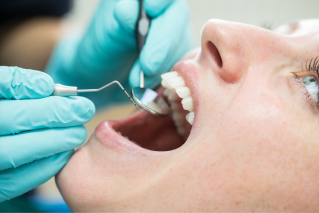A social media detox can do a lot more than just give more time

Less mindless scrolling will give you more time in real life. Photo: Getty
You might have just messaged someone on Facebook, searched for a recipe on Instagram or checked out that viral clip on TikTok. Whatever your favourite social media channels, chances are you’re using them now more than ever.
In Australia, the latest data shows a 4.3 per cent increase in social media users. As of January this year, there were 18 million social media users in Australia – that’s an increase of 735,000 people, according to the latest statistics from search engine optimisation (SEO) company Prosperity Media.
Facebook is the most popular social media platform with 16 million Aussie users, followed by YouTube with 15 million and Instagram with 9 million.
The upside of social media is its ability to keep people connected, informed and entertained.
However, researchers are investigating whether there are links between social media and addiction, depression and anxiety.
A study by headspace found the number of young people who identify social media as a cause for worsening mental health is increasing.
The headspace National Youth Mental Health Survey 2020 found more than half of young people (57 per cent) believe their mental health is getting worse, with 42 per cent citing social media as the main reason for the decline.
“Young people value the social connection, access to information, ability to explore interests and entertainment that social media platforms can provide,” the national clinical advisor at headspace Rupert Saunders said.
“But spending too much time on social media can cause people to feel down, overwhelmed, and unable to switch off,” Saunders said.
“Spending too long on social media is also associated with higher levels of mental health problems, including anxiety, depression, and psychological distress.”

Is social media taking too much of your time? Maybe, it’s time for a detox.
Creating healthy habits around social media usage may require a serious detox. So if you feel you’re losing too much time scrolling on a screen, here’s some tips to cut back:
Clock the time lost to social media
Clock how much time you’ve spent on social media to understand where you’re at. Most platforms will have ‘time spent’ details on the settings section of their apps.
This will give a picture of which platforms you spend the most time on, and enable you to create goals to spend less time on them. It could be a modest goal of a one hour reduction per week for a month, followed by a two hour reduction the next month.
A step-by-step approach is more achievable than shutting down your accounts altogether.
Cut ties with negativity
If you follow accounts that give rise to feelings of negativity including the fear of missing out or making you feel insecure, then stop following those accounts. If you don’t feel good when you look at the content on these accounts, it’s time for them to go.
Bedroom ban
Pre-bedtime scrolling is a notorious time waste. Plus, the stimulating effects of light from digital screens can keep us awake at night.
Don’t bring your device into your bedroom, find another way to set an alarm and you’ll notice an improvement to your sleep.
Set some real life goals
To become less active online, become more active in real life. Ditch the screen for old or new hobbies and meet people face-to-face.
Your social media detox could last a week or a month, but the new habits you form will stay when they make you feel better.








